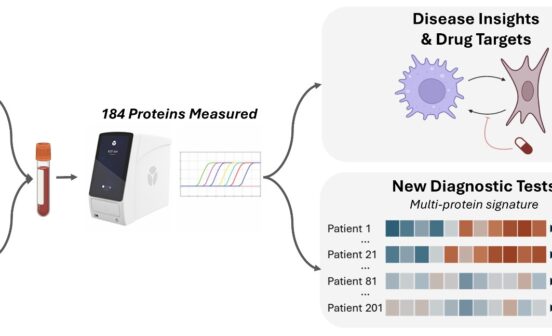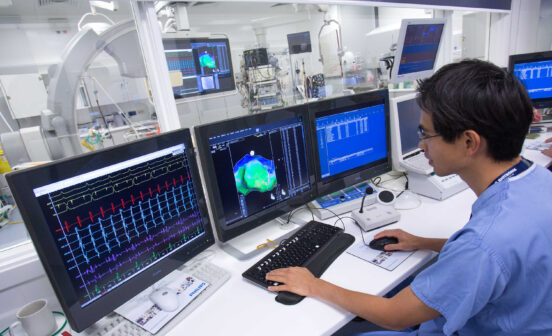Diagnostic Ripple Mapping
Ripple Mapping is a novel technique which interprets complex 3D electrical signals from the heart recorded from the patients suffering from arrhythmias (irregular heart beat). Imperial BRC supported the core clinical academic salaries and the clinical research infrastructure, such as the Imperial Clinical Trials Unit (ICTU). Ripple Mapping was filed by Dr Kanagaratnam with Imperial Innovations, a technology commercialisation company, who developed it as a clinical product in collaboration with Biosense Webster, a Johnson & Johnson company, under a trial licence.
Imperial Innovations have now signed a commercial license and Imperial College Healthcare NHS Trust have just completed an evaluation of the clinical version of CARTO-3 v4 with Ripple Mapping. It has improved local success rates for these procedures from 82% to 98%.
We now have ethics approval to test and develop the method further as a part of a multicentre prospective randomised study comparing against conventional approaches, with sites in Barts, Basildon, Papworth, Bournemouth and Lisbon. The multicentre study will help guide the roll-out of an international training programme to assist other electrophysiologists to use Ripple Mapping. We have already run a training day for the trial participants and this experience will help finalise the training programme for the commercial roll-out.
Ripple Mapping is also a research tool and has strong potential to be applied to other areas of arrhythmia research to improve therapies further.




